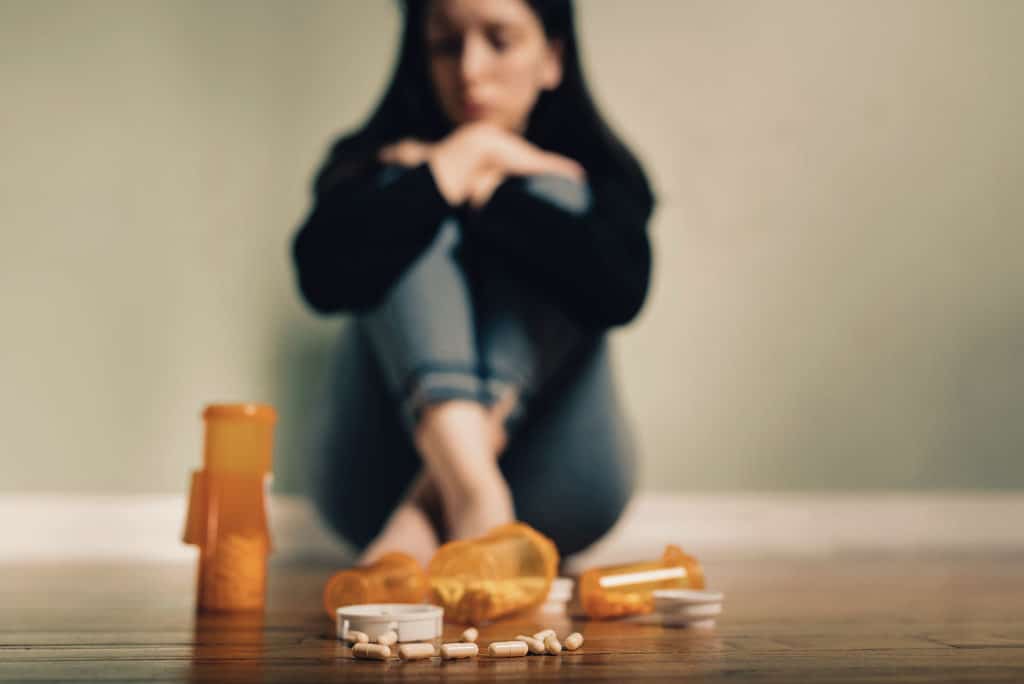Alcohol and drug abuse are the dark side of healthcare. The treatment services are available, but people don’t understand how dangerous these substances can be, and they rarely seek treatment.
Did you know that, in 2020, only 6.5% of people struggling with addiction in the U.S. sought treatment. In that same year, 40.3 million suffered from substance use disorder. That means over 37.6 million people didn’t even seek substance use disorder treatment.
Unfortunately, as of 2021, 107,000 of these people are no longer with us because of overdose.
These numbers are alarming, sad, and heartbreaking, but the good news is that they can be extensively reduced with the right awareness and knowledge.
If one of these statistics moved something in you, then you’re in the right place. In this guide, we’ll explain why addiction is more dangerous than people think and how you can put a stop to it once and for all.

Table of Contents
How Does Addiction Happen?
Addiction is a complex neurobiological disorder that typically begins when substances are used as a maladaptive coping mechanism for stress, trauma, or untreated mental health conditions.
In some cases, addiction can happen by complete accident. For example, doctors sometimes prescribe opioids for conditions of severe pain, and the wrong dosage can accidentally lead to opioid use disorder.
What originates as voluntary use often progresses into compulsive behavior due to profound changes in brain structure and function.
In other words, addiction may start as a choice, but being unable to quit isn’t. That happens because of two aspects: a physiological (physical) and psychological (mental) one.
The Psychological Component
Initially, individuals may use substances to alleviate emotional distress or enhance social experiences. However, chronic exposure disrupts the brain’s reward circuitry, particularly the mesolimbic dopamine system. This leads to:
- Impaired decision-making due to prefrontal cortex dysfunction
- Increased cravings driven by conditioned responses
- Prioritization of substance use over natural rewards
At this point, the body no longer finds reward or satisfaction from its own dopamine secretion
The Physiological Component
With continued use, neuroadaptations occur, resulting in:
- Tolerance: Requiring higher doses to achieve the same effect
- Dependence: Experiencing withdrawal symptoms when not using
- Dysregulated stress response systems, making abstinence physiologically challenging
These changes create a self-perpetuating cycle where substance use disorders alter both brain function and behavior. The condition becomes characterized by:
- Loss of control over use
- Continued use despite negative consequences
- Inability to abstain without professional intervention
At this stage, addiction treatment requires medical supervision to address both the mental health aspects and physiological dependency.
Evidence shows that comprehensive care combining medication-assisted treatment, behavioral therapy, and mental health services yields the best outcomes for sustained recovery.
After all, the point isn’t to just detox from the substance. No matter how hard that can be, it’s only a one-week process. The real challenge is in not relapsing, and that’s when professional intervention excels.

Why Is It Difficult to Quit Addiction Without Professional Help?
You can probably tell why it is difficult by now, but you won’t understand the scale of its difficulty until we break it down further
But don’t worry, at Illinois Recovery Center, our evidence-based treatment programs address the complex interplay of biological, psychological, and social factors that make independent recovery attempts so difficult.
That being said, here’s why people are less likely to quit on their own, or as some people might try, cold turkey:
1. Neurobiological Changes Demand Medical Intervention
Substance use disorders create lasting alterations in brain chemistry that undermine recovery efforts. The development of tolerance and physical dependence means that withdrawal symptoms often require medical management.
Our addiction medicine specialists provide FDA-approved medications, including buprenorphine for opioid use disorder, as part of a comprehensive medication-assisted treatment plan.
This professional medical support helps stabilize patients during the critical detoxification phase while reducing dangerous withdrawal complications.
2. Co-Occurring Mental Health Conditions Require Dual Diagnosis Care
Many individuals struggling with addiction simultaneously battle depression, anxiety, PTSD, or other mental health conditions.
Our behavioral health team provides integrated treatment for these co-occurring disorders through specialized psychiatry services and trauma-informed therapies.
This dual diagnosis approach is essential since untreated mental health conditions remain one of the strongest predictors of relapse. We offer both inpatient and intensive outpatient programs designed to address these difficult needs.
3. Structured Treatment Programs Prevent Relapse
The transition to sobriety requires more than just stopping substance use, it demands learning new coping mechanisms and life skills.
Our treatment center offers multiple levels of care, including partial hospitalization and outpatient services tailored to each patient’s needs.
Through cognitive behavioral therapy and other evidence-based modalities, we help patients develop relapse prevention strategies while addressing the root causes of their substance abuse.
4. Comprehensive Care Supports Long-Term Recovery
Successful addiction treatment requires addressing the whole person, not just the substance use disorder. We know that from experience.
Our care services include case management to connect patients with community resources, family therapy to repair relationships, and medication management to ensure proper treatment of co-occurring conditions.
We also accept both Medicaid and Medicare to improve access to these vital services, and our treatment plans are customized to support each patient’s unique path to wellness.
5. Ongoing Recovery Support Maintains Sobriety
The first months of recovery are always the hardest; patients adjust to sober living. Our continuum of care includes multiple aftercare programs with recovery support services to help patients go through this difficult phase.
From outpatient treatment follow-ups to alumni programs, we provide the ongoing support network essential for maintaining long-term sobriety and preventing relapse.

Settle for Nothing but the Best
Addiction treatment isn’t easy. The feeling of pain, loneliness, guilt, and social stigma; we know all about it, and we know how to make anyone who struggles with addiction feel at home.
It’s not all science and evidence-based treatments, there’s a human side to our substance abuse treatment as well. Our providers are people who care, not just people who work; they treat everyone like family members.
Plus, our treatment options aren’t limited to drug addiction. If you or a loved one is suffering from alcohol use disorder, we’d love to talk.
Take control of your life. Contact us. Let us hear your story and help you break through.



